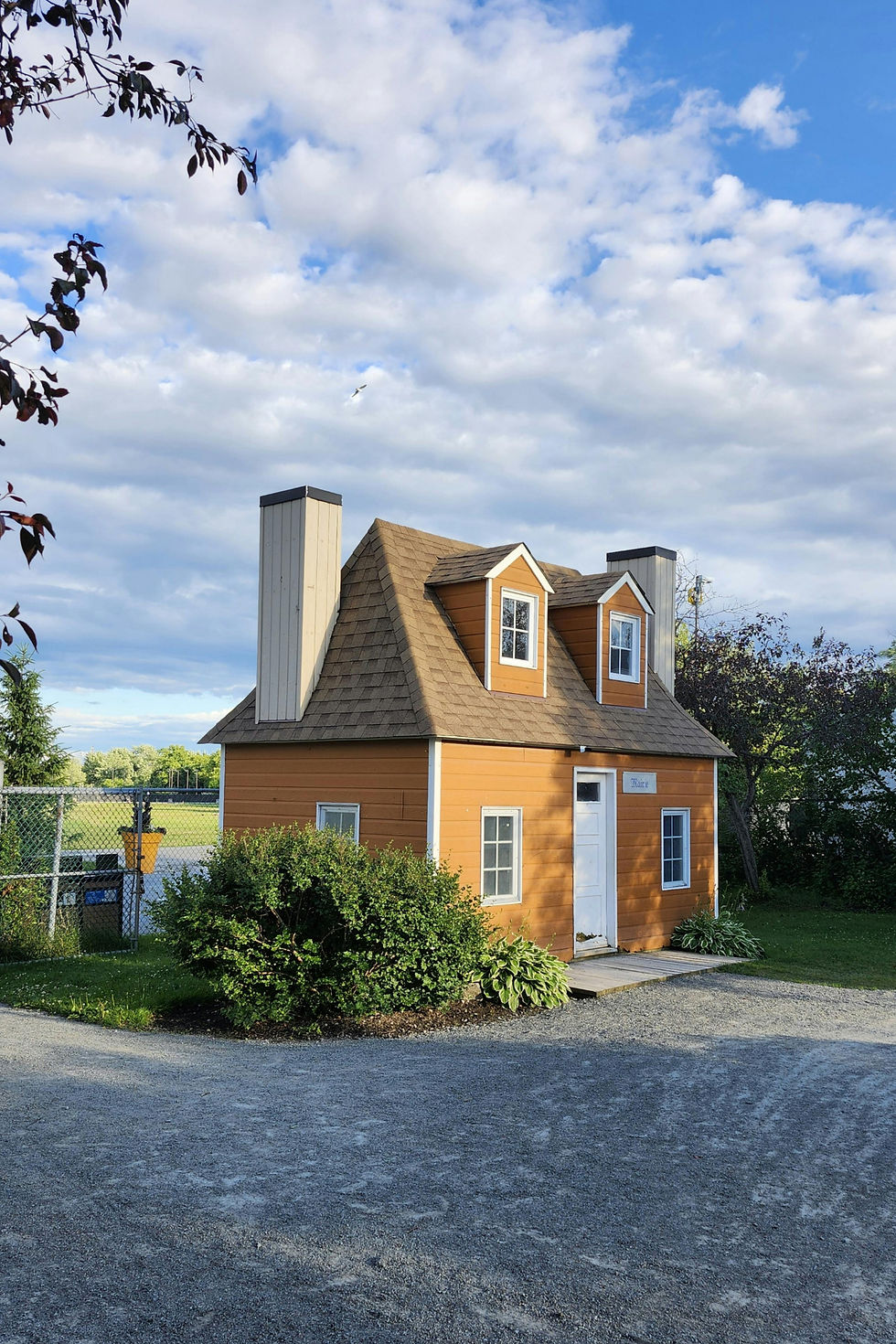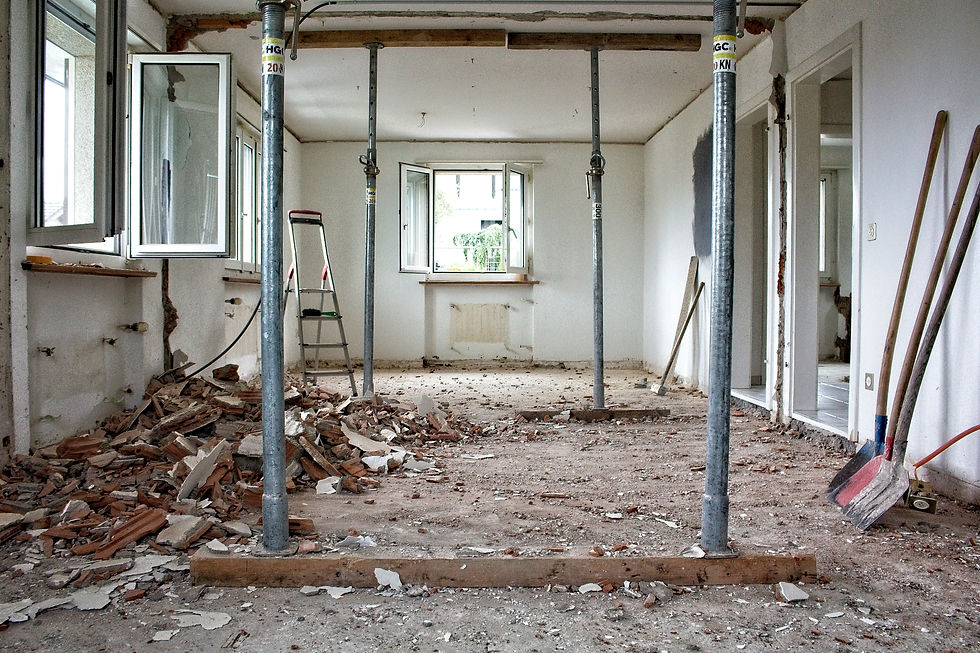Exploring Home Construction Options in North Carolina
- Mollie Staretorp

- Jan 8, 2025
- 4 min read
Updated: Aug 20, 2025

Building a home in North Carolina isn’t just a project; it’s a chance to create something that truly reflects your life, your values, and your future. From mountain retreats to coastal cottages to suburban sanctuaries, the options are as diverse as the landscape.
But before you dive into floor plans and finishes, it’s important to understand your construction choices, the local regulations that shape your path, and the resources available to help you build with clarity and confidence.
Home Construction Methods in North Carolina (What Are Your Options?)
Whether you’re building from scratch or working with a developer, most homes in North Carolina fall into three categories. Each option comes with its own pros, limitations, and lifestyle fit.

1. Traditional Stick-Built Homes
Stick-built homes are constructed on-site, one piece at a time. Framing is done using lumber, and every element, from the foundation to the finish work, is customized during the build.
Why choose it:
Full flexibility in design and layout
Wide range of material choices
Strong resale value
Easier to finance with conventional loans
Stick-built construction is the most common method for a reason: it's adaptable, proven, and well-supported by local contractors.

2. Modular Homes
Modular homes are pre-assembled in sections off-site, then delivered and installed on your land. They aren’t mobile homes: they’re built to the same codes as traditional homes and must pass local inspections.
Why choose it:
Faster build timelines
Potential cost savings
Energy-efficient construction
Less material waste
Modular homes are ideal for buyers who value speed and efficiency but still want something permanent and well-built.

3. Tiny Homes
For those seeking a simpler lifestyle or a unique secondary dwelling, tiny homes offer compact design, low maintenance, and a smaller environmental footprint.
Why choose it:
Lower construction and utility costs
Easier land access (in some areas)
Encourages intentional living
Just be sure to check zoning regulations - tiny homes aren’t yet legal in every North Carolina county, and placement (on wheels vs. foundation) affects what’s allowed.
Can You Legally Build Your Own Home in North Carolina?
Yes - North Carolina law allows homeowners to act as their own general contractor under certain conditions. But be prepared to follow local and state building codes, acquire proper permits, and schedule inspections.
If you self-build, you’re responsible for:
Pulling all permits
Hiring and supervising subcontractors
Passing final inspections
Meeting all structural and safety requirements
Many people choose to hire professionals to manage or oversee key parts of the project, especially when it comes to structural, electrical, and plumbing work.
What Should You Consider Before Building?

Before choosing a plan or breaking ground, here are three key factors that will shape your project:
1. Budget
Home construction is about more than just square footage. Be sure to factor in:
Land acquisition
Site prep and grading
Permit and impact fees
Utility connections
Material costs (which fluctuate)
We also recommend a 10–15% contingency to cover unexpected changes or opportunities you may want to take advantage of mid-project.
2. Location
Whether you’re building in Wake Forest, Pittsboro, or the foothills of Boone, location will affect everything from resale value to construction logistics.
Consider:
School zones
Distance to work and amenities
Lot orientation (sunlight, drainage, slope)
Community rules (especially in HOAs)
3. Design + Lifestyle Fit
Good design balances beauty and function. Think about how you want your home to feel, not just how it should look.
Some questions to guide your design:
Will you need aging-in-place or multigenerational flexibility?
Is energy efficiency a top priority?
How much outdoor space matters to you?
Do you want room to grow, or room to slow down?
An experienced architect or builder can help translate your lifestyle into a home you’ll love long term.
Choosing the Right Builder or Contractor
Your builder is more than just a service provider; they’re your partner through the entire journey. Look for someone who:
Is licensed, bonded, and insured in NC
Has strong reviews and a solid portfolio
Communicates clearly and respects your time
Offers written contracts, warranties, and defined scopes of work
You’ll be working with them for months — make sure you feel confident, respected, and heard.
Financing Your New Build in North Carolina
Construction financing is different from a standard home loan. Explore these common options:
Construction-to-permanent loans (convert to a mortgage once construction is complete)
FHA construction loans (for lower down payment options)
VA construction loans (if eligible — for veterans and active service members)
Land + construction package loans (for buying and building together)
Work with a local lender who understands North Carolina’s building process. They can walk you through timelines, draws, and documentation requirements.
Local Resources That Can Help
These organizations and platforms can be valuable during your planning:
Home Builders Association of North Carolina – Find trusted builders and code updates
Your Local Chamber of Commerce – Insight into growth areas and zoning
County Planning Departments – Site-specific rules and permit processes
Online homeowner forums – Real stories and lessons from others who’ve built here
Final Thoughts
There’s no one right way to build a home in North Carolina, only the path that makes sense for your lifestyle, your budget, and your vision.
Whether you’re drawn to traditional craftsmanship, modular efficiency, or minimalist living, the most important thing is building with intention. Undergoing home construction in North Carolina is no easy tasks but if you know your options, ask good questions, and surround yourself with people who take pride in the work they do.
If you're planning to build or renovate in the Triangle, we’d love to be part of your journey. Let’s start with a conversation.



